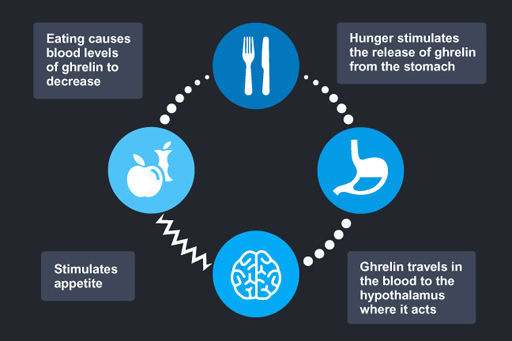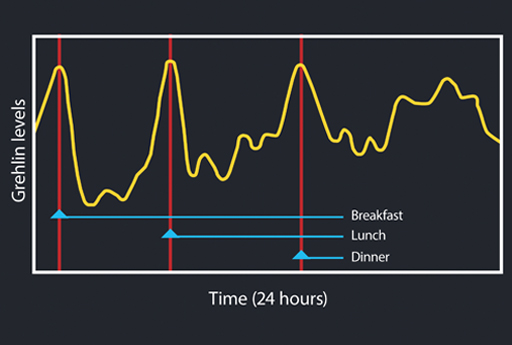1.2 Ghrelin
People often say that they eat because they are hungry, but what makes you feel hungry?
This has puzzled physiologists (scientists who study living systems) for many years and there are still no really clear answers. More than 20 different sorts of hormones (chemical messenger molecules that travel in the blood) are produced by the cells of the digestive system (gut). But it is not clear how many of these have a role in making us feel hungry or feel full (satiated) after we have eaten. Ghrelin is one hormone that has been studied in detail since it was first identified in 1999 (Kojima et al., 1999, Kojima, 2010).
Ghrelin is often called the ‘hunger hormone’, although its name is derived from a different function – causing the release of growth hormone (Growth Hormone Release Inducing). It is released into the blood when the stomach is empty and travels to the brain. There, it acts on a control centre in the brain called the hypothalamus and makes you feel hungry (Figure 1).
If you measure ghrelin levels in the blood, they are high just before a meal and then drop steeply after eating. It may be ghrelin that causes your stomach to rumble when you are hungry. When your stomach is full, ghrelin levels decrease and you feel less hungry (Figure 2).
However, other parts of the brain can block the effects of ghrelin. For example, you have probably noticed that when you are busy, you don’t even think about being hungry.


